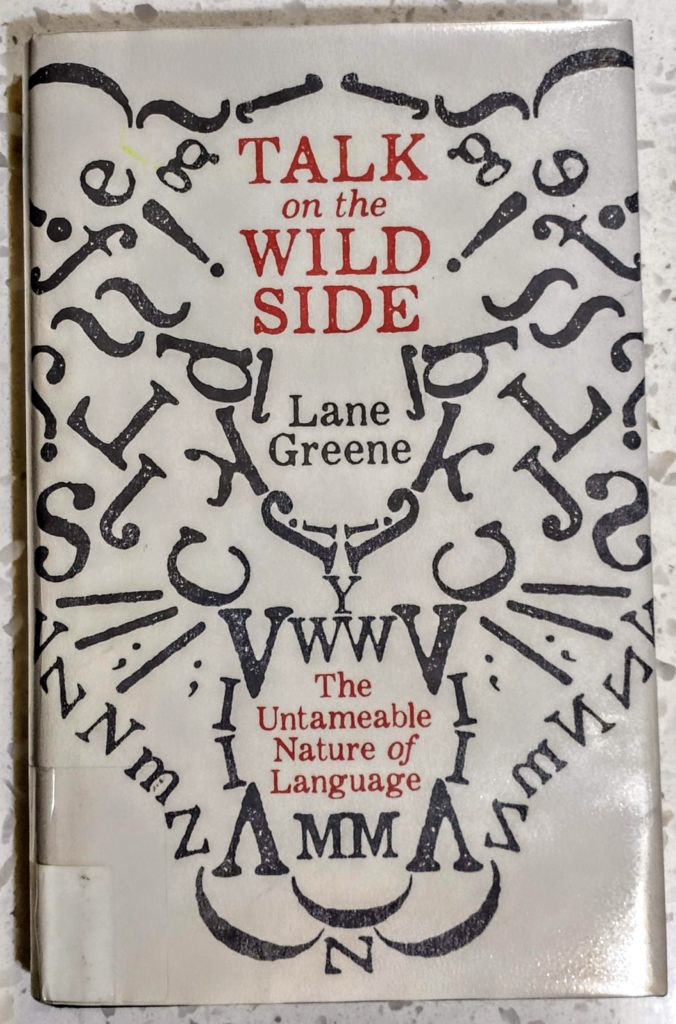
This is a description of how human languages work and why they cannot be tamed. Greene thinks we should understand language by understanding how it originated and developed, and allowing our understanding (and standards) to develop too. This is opposed to the “traditionalist” or “prescriptivist” point of view, which says we must determine the most logical set of rules for our language and defend them to the death. But the prescriptivists have been discredited now. We don’t think there’s anything wrong with splitting infinitives or ending with prepositions any more; even the singular “they” has become more and more acceptable, even before Facebook and all the modern gender pronoun malarkey. Like Thanos, it is inevitable.
Green thoroughly debunks those and other grammatical chestnuts, personified by the crackpot amateur linguist Nevile Gwynne, holding up his arbitrary and long-out-of-date notions as the One True English. Gwynne’s general level of crankery was exposed by Oliver Kamm, whose book Accidence Will Happen covers similar territory to Greene’s.
Greene holds up Steven Pinker as a model of how to think about language. Pinker’s The Sense of Style is the best book I have read on the subject, so Greene gets some reflected glory there.
I found a nice piece of serendipity in this book too. Green discusses the difficulty of preserving minority languages and culture. He writes about Gwenno Saunders, who was raised as a native speaker of the Cornish language. And it turns out that she was a member of a favourite pop group of mine, The Pipettes, and has since released albums in Welsh and Cornish. I’ve been listening to Le Kov quite a bit since then — my first encounter with the Cornish language.